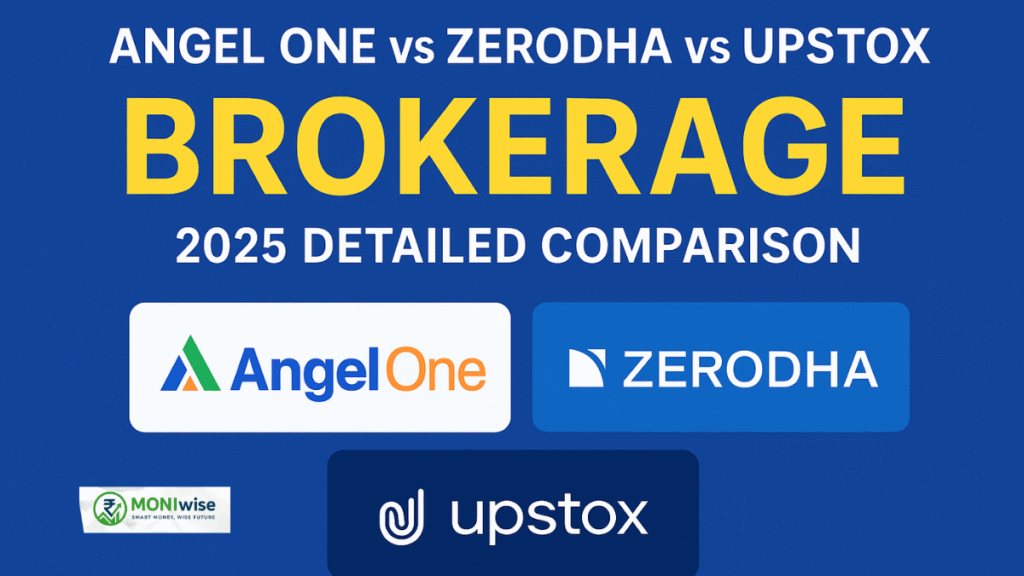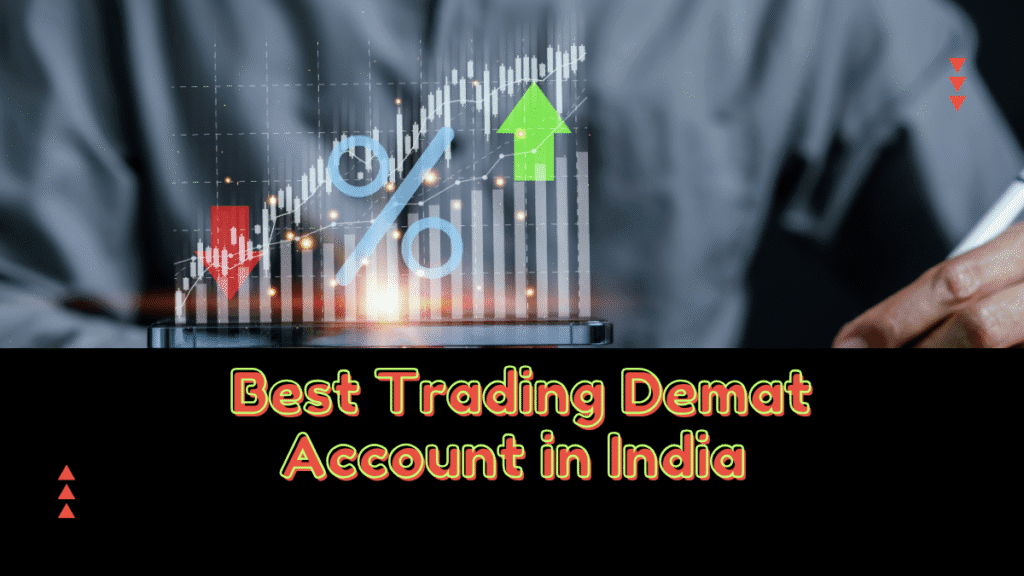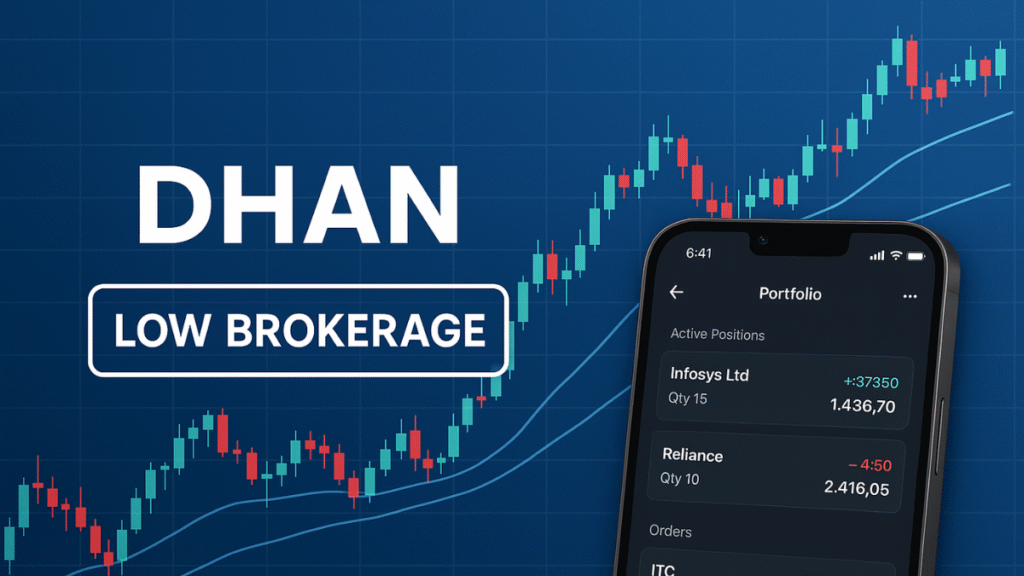Choosing the right stockbroker is a key step for effective investing in India, and understanding brokerage comparison between leading platforms like Angel One, Zerodha, and Upstox is essential for making informed decisions and minimizing trading costs.
Introduction: The Importance of Brokerage Comparison
Stockbrokers are crucial intermediaries for executing trades in equity, derivatives, and other instruments. Brokerage charges determine your trading profitability, especially for frequent traders and long-term investors. This article offers a detailed, E-E-A-T-driven analysis on how Angel One, Zerodha, and Upstox stack up in terms of brokerage, additional costs, service quality, and platform features.
Interested in a deeper Angel One review? See our comprehensive article: Angel One Trading Account Review
Quick Summary Table: Brokerage Charges (2025)
Tap to get zero delivery brokerage & expert tools – limited-time referral offer!
Angel One Brokerage Structure (2025)
- Equity Delivery: No brokerage charges—making it attractive for long-term investors.
- Intraday, F&O, Currency, Commodity: Flat ₹20 per executed order or 0.03% of order value (whichever is lower).
- Additional Charges: GST (18% on brokerage), Transaction Charges, Stamp Duty, STT, CTT, SEBI Turnover Fees, DP charges apply to sales.
- Pros: Zero delivery brokerage, robust research/advisory (ARQ tool), excellent mobile platform.
- Cons: DP charges slightly higher than some rivals, research tools may be overwhelming for beginners.
Zerodha Brokerage Structure (2025)
- Equity Delivery: Completely free; no brokerage—ideal for investors.
- Equity Intraday & F&O: Flat ₹20 or 0.03% per executed order (whichever is lower).
- Additional Charges: Standard statutory charges; DP charges lower than Angel One, strong transparency.
- Pros: Simple and transparent pricing, top-rated Kite trading platform, largest retail market share.
- Cons: No dedicated RM for basic accounts, support is digital only.
Upstox Brokerage Structure (2025)
- Equity Delivery: ₹20 per executed order (minimum; higher than Angel One & Zerodha).
- Equity Intraday & F&O: ₹20 or 0.05%/0.1% per executed order (whichever is lower).
- Additional Charges: GST, transaction charges, DP charges per scrip per day on sale.
- Pros: Advanced trading features, free first-year AMC, ideal for high-frequency traders.
- Cons: Delivery brokerage not zero, some charges can add up longer term.
Practical Brokerage Examples
- Equity Delivery (₹1 Lakh, Single Order):
- Intraday Trade (₹50,000, Single Order):
- Options/Futures (Per Executed Order):
Service Quality and Platform Features
Angel One
- Comprehensive platform (Angel One Super App)
- Deep research and robo-advisory tools (ARQ)
- Good for investors needing guidance
Zerodha
- Simple user interface (Kite web/mobile)
- Largest retail user base, ultra-low costs
- Transparent, robust tech infrastructure
Upstox
- Feature-rich trading app, advanced charting
- Best for active/day traders, seamless onboarding
- Free first-year AMC, regular offers
Expert Insights & Tips
- Zero brokerage for equity delivery favors Angel One and Zerodha for investors.
- Intraday traders benefit equally from all three due to ₹20/order cap; Upstox and Zerodha occasionally run special offers for volume traders.
- DP charges impact overall costs, especially for regular sellers; Zerodha’s are lowest.
Pros and Cons: Summary Table
Must Check
- Read more: Angel One Trading Account Review
- For up-to-date regulatory information and verified rates, refer to the official source: NSE India (external authoritative link).
Frequently Asked Questions (FAQs)
1. Which broker is cheapest for delivery trades in 2025?
Angel One and Zerodha carry zero brokerage for equity delivery trades, while Upstox charges ₹20 per executed order.
2. Who has the lowest DP charges?
Zerodha often offers the lowest DP charges per sale at ₹13.5, compared to Angel One and Upstox at ₹20 each.
3. Can I open a trading account for free with these brokers?
All three brokers provide free trading and demat account opening in 2025, but ongoing AMC may apply beyond the first year for Upstox and Angel One.
4. Are there hidden charges apart from brokerage?
Yes, traders must factor in statutory charges such as GST (18%), transaction charges (exchange-based), STT, CTT, SEBI fees, and DP charges.
5. Which broker provides the best mobile trading experience?
Opinions are subjective, but Angel One’s Super App and Zerodha’s Kite App are highly rated for stability, ease-of-use, and features.
6. Is there a difference in F&O trading fees?
All three brokers charge a flat ₹20 per executed order for F&O segments, minimizing differences in this area.
7. Which broker should beginners choose in 2025?
Beginners may prefer Angel One for its advisory tools or Zerodha for its user-friendly interface; both offer free delivery trading and robust support material.



